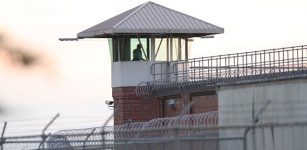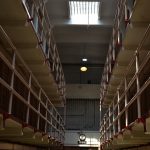Isolating Extremists Increases the Danger

One of the responses used by many countries to the threat of violent extremism has been to segregate suspected offenders in prison.
However, a decade-long study of prisons in the Philippines by Australian National University researcher Dr Clarke Jones suggests the practice tends to harden radical beliefs and reduce the prospect of rehabilitation, potentially increasing the likelihood of offending after release.
The research
Dr Jones and his Filipino colleague Raymund Narag monitored the impact of harsher prison environments – marked by isolation, reduced visitation and the curtailing of religious rights – on radicalised prisoners over a decade.
The study compared the New Bilibid prison – which integrates terrorism suspects into the general population – with Metro Manili district prison – which segregates them.
It ultimately found that segregated inmates were far more likely to maintain and even strengthen their extremist views, and to display increased aggression, while those who were dispersed amongst the general population frequently tempered their extremist views, and were generally less prone to violence and aggression.
Contrary to popular fears, the study found no evidence of a spread of radicalisation in populations within which extremists were dispersed.
Dr Jones further found that:
“When prisons become overcrowded or the conditions become extremely harsh, then there’s a greater chance of prison radicalisation and also less chance of rehabilitation”.
He additionally found that poor conditions can lead to inmates adopting extremist beliefs for the first time.
Segregating extremists in NSW
Late last year, the NSW government announced that a specialised unit would be built at Long Bay Correctional Complex to house inmates facing or convicted of terrorism offences.
The ten cells are to be set aside for AA-classified high-risk inmates, who are currently housed at the High-Risk Management Correctional Centre known as ‘Supermax’ in Goulburn.
The government is also doubling the capacity of the Supermax, creating a new high-security unit at Goulburn prison, and has introduced a specialist team to manage radicalised inmates across prisons.
The project will cost tens of millions of dollars and is premised on unproven belief that isolating extremists reduces the likelihood their views will spread.
According to Premier Berejiklian:
“We’ll be giving $47 million over the next three years to have the extra capacity to isolate those prisoners who are likely to try a spread radicalisation through the prison network,”
With 33 people suspected or convicted of terrorism-related offences, this represents more than $1 million per inmate.
It should be added that in mid-2017, Corrective Services Commissioner Peter Severin told the media that only about five inmates had been radicalised within the prison system over the past decade.
Victorian approach
In contrast, Victoria generally implements an integratory model when it comes to radicalised inmates.
The idea is that dispersing those with extremist views amongst more moderately-minded inmates is more likely to lead to a dilution of radical views, and increase the prospects of rehabilitation.
The model is consistent with the findings of Dr Jones’ research, and less costly to the taxpayer.
A spokeswoman for Corrections Victoria confirmed that radicalised inmates are dispersed “wherever practicable” and “according to their assessed level of risk and individual needs”.
By doing this, “prisoners are encouraged to confront their extremist ideologies and to learn to live respectfully with others from different backgrounds and faiths.”
It seems that our southern neighbour has adopted a cheaper and more sensible approach to radicalisation than our own government.







